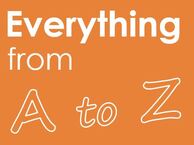ACADEMIC LISTENING TEST PRACTICE
THE IELTS - A BRIEF INTRODUCTION
THE IELTS - A BRIEF INTRODUCTION
For Students Preparing for Academic Tests / IELTS and TOEFL
Listen as you read the script.
Playing Time: 1 minute 55 seconds
Are you thinking of taking the IELTS exam? Yes? Then here is some information about the ‘International English Language Test System' (IELTS) that maybe you didn’t know before.
The test was developed by the British Council and first used in 1989. Now, every year, about two million people take the test in more than 120 different countries around the world. There is not one test, but two. There is the ‘Academic’ IELTS and there is the ‘General Training’ IELTS. The Academic test is usually taken by people who want to enter a college or a university (either in their home country or in an English speaking country, such as Canada or New Zealand). Meanwhile, the General Training test is usually taken by people who want to move to, and live in, another country.
More than 9,000 colleges, universities and other organizations accept the IELTS. The first three parts of both test versions last for two hours and forty-five minutes. Both versions, the Academic and the General Training, test a person’s ability to listen to, and understand, spoken English, as well as their reading, writing and speaking ability.
The different parts of the IELTS are known as modules, and, except for the Speaking Module, they are always taken on the same day. The Speaking Module is usually taken on a separate day. After a person takes the exam, he or she will receive a score, or grade, also known as a ‘band.' These bands are from between zero and nine, with nine being the highest possible score. Students entering a college, or university, usually need an IELTS band of between 5 and 6, depending on the program and the place of study.
The test was developed by the British Council and first used in 1989. Now, every year, about two million people take the test in more than 120 different countries around the world. There is not one test, but two. There is the ‘Academic’ IELTS and there is the ‘General Training’ IELTS. The Academic test is usually taken by people who want to enter a college or a university (either in their home country or in an English speaking country, such as Canada or New Zealand). Meanwhile, the General Training test is usually taken by people who want to move to, and live in, another country.
More than 9,000 colleges, universities and other organizations accept the IELTS. The first three parts of both test versions last for two hours and forty-five minutes. Both versions, the Academic and the General Training, test a person’s ability to listen to, and understand, spoken English, as well as their reading, writing and speaking ability.
The different parts of the IELTS are known as modules, and, except for the Speaking Module, they are always taken on the same day. The Speaking Module is usually taken on a separate day. After a person takes the exam, he or she will receive a score, or grade, also known as a ‘band.' These bands are from between zero and nine, with nine being the highest possible score. Students entering a college, or university, usually need an IELTS band of between 5 and 6, depending on the program and the place of study.
Note: For more cool ESL resources about the IELTS, visit my All Things Topics site.


